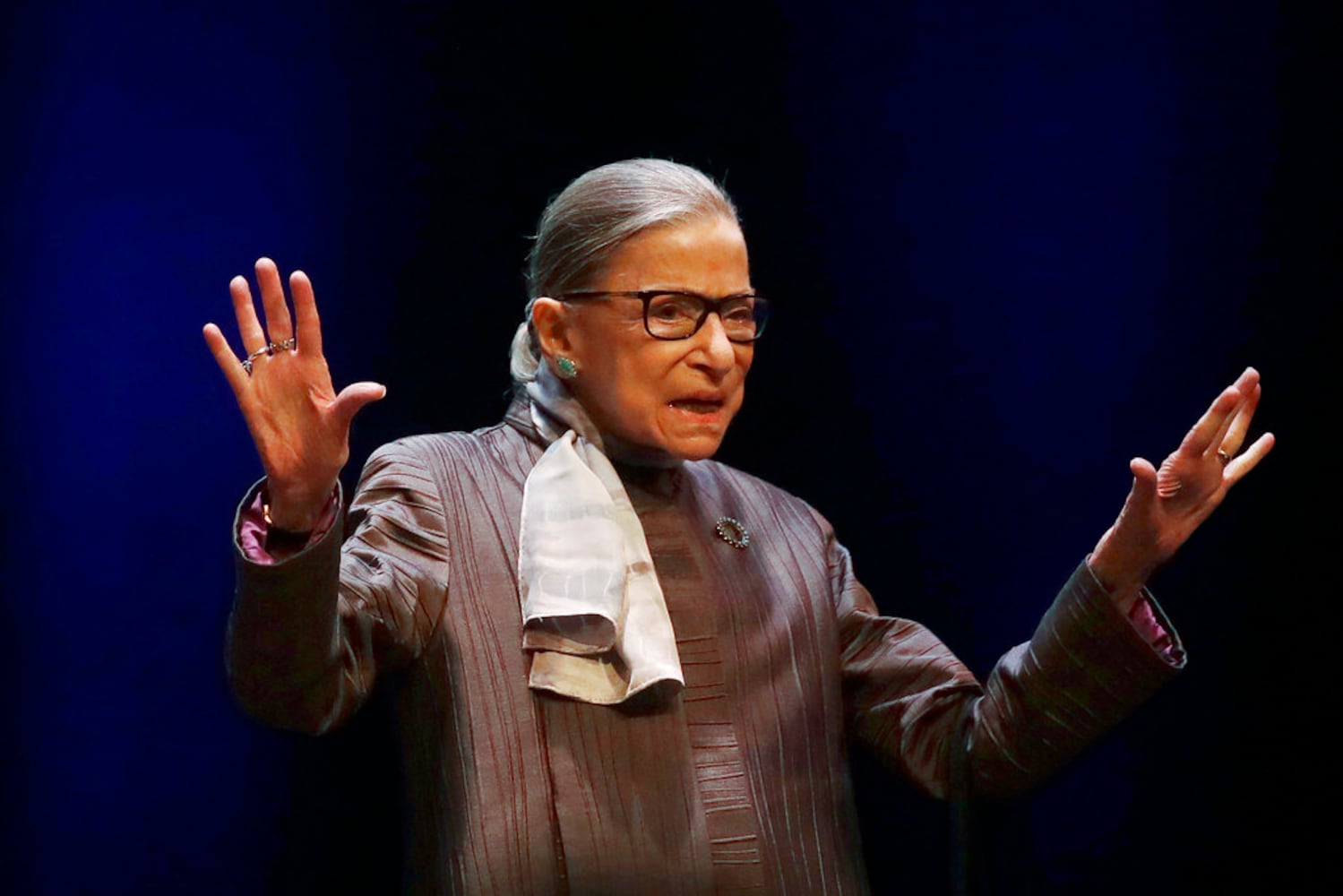President Donald Trump said he thinks his Supreme Court nominee will be a woman and likely will be named next week, according to reporter Josh Wingrove.
The president said he would prefer a confirmation vote before the Nov. 3 election, Wingrove reported.
Earlier Saturday, Trump urged the Republican-run Senate to consider “without delay” his upcoming nomination to fill the Supreme Court seat vacated by the death of Justice Ruth Bader Ginsburg just six weeks before the election.
“We were put in this position of power and importance to make decisions for the people who so proudly elected us,” Trump tweeted, “the most important of which has long been considered to be the selection of United States Supreme Court Justices. We have this obligation, without delay!”
Senate Majority Leader Mitch McConnell, R-Kentucky, vowed Friday night, hours after Ginsburg’s death, to call a vote for whomever Trump nominated. Democratic presidential nominee Joe Biden said any vote should come after the Nov. 3 election. “Voters should pick the president and the president should pick the justice to consider,” Biden said.
Ginsburg’s death has brought renewed attention to the nation’s highest court and has given the president another chance to cement his conservative imprint on the court regardless of his reelection.
Ginsburg, who was the second female Supreme Court justice after Sandra Day O’Connor, died Friday at her home in Washington at age 87 of complications from metastatic pancreatic cancer.
Trump was informed of Ginsburg’s death after a campaign rally Friday night in Minnesota, and called her “an amazing woman who led an amazing life.”
McConnell said Friday night that Trump’s nominee would receive a Senate floor vote.
According to the Constitution, Supreme Court justices, court of appeals judges and district court judges are nominated by the president and confirmed by the U.S. Senate.
The president nominates someone for a vacancy on the court and the Senate votes to confirm the nominee, which requires a simple majority. Potential nominees are also sometimes recommended by members of Congress who belong to the same political party as the president.
The Senate Judiciary Committee usually conducts confirmation hearings for each nominee who, according to Article III of the Constitution, is appointed for life. The only justice to be impeached was Associate Justice Samuel Chase in 1805, but he was acquitted by the Senate.
The Constitution has no specific requirements for the justices, such as age, education, profession or native-born citizenship. A justice doesn’t have to be a lawyer or a law school graduate; according to the court, many of the 18th- and 19th-century justices studied law under a mentor because there were few law schools in the country.
Trump, according to ABC News, is expected to announce his nomination for Ginsburg’s seat in the coming days.
Ginsburg’s death just over six weeks before Election Day has already set off a heated battle whether Trump should nominate, and the Republican-led Senate should confirm, her replacement, or if the seat should remain vacant until the outcome of his race against Democrat Joe Biden is known.
Late Friday night, Biden made his feelings on the subject known.
After the nominee’s Senate confirmation hearing, and if the GOP — which controls the Senate — musters 50 votes, Democrats would not be able to prevent another Trump judicial appointee from assuming office.
Ginsburg announced in July that she was undergoing chemotherapy treatment for lesions on her liver, the latest of her several battles with cancer.
Ginsburg spent her final years on the bench as the unquestioned leader of the court’s liberal wing and became something of a rock star to her admirers. Young women especially seemed to embrace the court’s Jewish grandmother, affectionately calling her the Notorious RBG, for her defense of the rights of women and minorities, and the strength and resilience she displayed in the face of personal loss and health crises.
Those health issues included five bouts with cancer beginning in 1999, falls that resulted in broken ribs, insertion of a stent to clear a blocked artery and assorted other hospitalizations after she turned 75.
She resisted calls by liberals to retire during Barack Obama’s presidency when Democrats held the Senate and a replacement with similar views could have been confirmed. Instead, Trump will almost certainly try to push Ginsburg’s successor through the Republican-controlled Senate — and move the conservative court even more to the right.
Ginsburg antagonized Trump during the 2016 presidential campaign in a series of media interviews, including calling him a faker. She soon apologized.
Her appointment by President Bill Clinton in 1993 was the first by a Democrat in 26 years. She initially found a comfortable ideological home somewhere left of center on a conservative court dominated by Republican appointees. Her liberal voice grew stronger the longer she served.
The Associated Press contributed to this report.
The Latest
Featured






